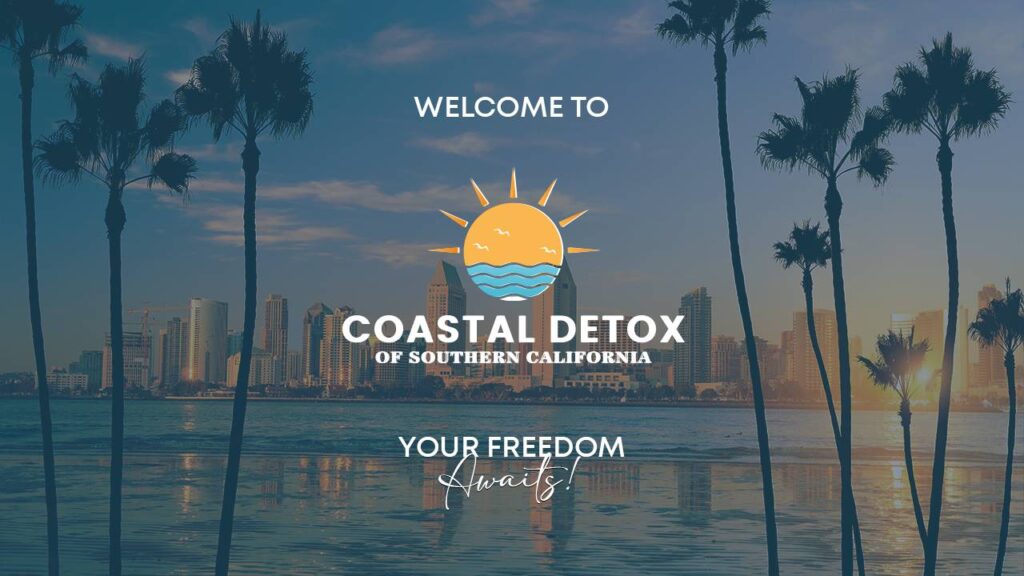Every October, millions of people worldwide take on a powerful challenge: giving up alcohol for an entire month. Known as Sober October, this global movement offers far more than just a temporary break from drinking. It’s an opportunity to reset your relationship with alcohol, discover untapped energy and clarity, and potentially transform your health in lasting ways.
Whether you’re curious about cutting back, questioning your drinking habits, or simply looking for a fresh start before the holiday season, Sober October provides a structured framework to explore life without alcohol. At Coastal Detox, we’ve witnessed firsthand how even brief periods of abstinence can spark profound changes in people’s lives.
Understanding Sober October: Origins and Purpose
Sober October began in the United Kingdom in 2013 as a fundraising campaign created by Macmillan Cancer Support. The initiative encouraged participants to abstain from alcohol for the entire month of October, raising money to support people living with cancer. What started as a charitable campaign has evolved into a global wellness movement that helps participants examine their drinking habits while supporting a meaningful cause.
The challenge is open to anyone interested in taking a break from alcohol, regardless of whether they have concerns about dependency. You don’t need to identify as having an alcohol problem to participate—Sober October welcomes social drinkers, moderate consumers, and anyone curious about the benefits of temporary abstinence.
The Core Rules of Sober October
The foundation of Sober October rests on straightforward principles that make the challenge both clear and achievable:
Complete Abstinence: Participants commit to avoiding all alcoholic beverages for the entire 31 days of October. This means no beer, wine, spirits, or mixed drinks—regardless of the occasion or social pressure.
No Exceptions: The challenge requires consistency throughout the month, with no allowances for special occasions or social gatherings. This firm boundary helps participants truly experience the benefits of sustained abstinence and tests their commitment to personal growth.
Full Commitment: Success in Sober October depends on approaching the challenge with genuine dedication. Rather than viewing it as deprivation, participants are encouraged to embrace it as an opportunity for self-discovery and improved wellbeing.
The Science-Backed Benefits of Taking a Break
Taking a month-long break from alcohol can lead to numerous positive changes, with some people discovering that alcohol was irritating their stomach, disrupting their sleep, causing weight gain, or contributing to conflicts. The benefits extend across physical, mental, and emotional health domains.
Physical Health Improvements
Your body begins healing remarkably quickly once alcohol consumption stops. Many participants report better sleep quality, as alcohol can disrupt the REM cycle that’s essential for restorative rest. Without the sleep interference caused by alcohol, people often wake feeling genuinely refreshed and energized.
Digestive issues frequently improve during Sober October, as alcohol can irritate the stomach lining and cause problems like heartburn and bloating. The absence of alcohol allows your digestive system to heal and function more efficiently.
Skin improvements are another common benefit, with many people noticing clearer complexions and better hydration. Alcohol dehydrates the skin and can trigger breakouts, so a month without drinking often results in a noticeable glow.
The immune system also strengthens during abstinence, which is particularly valuable when entering flu season. This enhanced ability to fight off illness means you’re better protected against common infections and viruses.
Research has shown that taking a month-long break from alcohol can benefit liver health, giving this vital organ time to recover from the constant processing of alcohol’s toxic byproducts.
Mental and Emotional Benefits
Mental clarity represents one of the most striking benefits, with many participants reporting feeling sharper, more alert, and more present during their sober month. The cognitive fog that often accompanies regular alcohol consumption lifts, revealing improved focus and decision-making abilities.
The challenge can boost psychological wellbeing by helping individuals reassess their relationship with alcohol and cultivate healthier habits. This period of reflection often leads to valuable insights about drinking patterns, emotional triggers, and the role alcohol plays in daily life.
Successfully completing Sober October instills a sense of accomplishment and boosts self-esteem. The confidence gained from proving you can abstain for a full month often extends into other areas of life, encouraging positive changes beyond just drinking habits.
Financial and Social Benefits
The financial savings from cutting out alcohol purchases can be substantial. For some people, these savings are significant enough to redirect toward other rewarding activities or investments.
Beyond the monetary aspect, Sober October provides an opportunity to discover new ways to socialize and connect with others. Many participants find they can enjoy social situations without alcohol as a crutch, leading to more authentic relationships and memorable experiences.
Common Challenges and How to Overcome Them
While Sober October offers tremendous benefits, the journey isn’t always smooth. Understanding potential obstacles helps you prepare effective strategies for success.
Social Pressure and FOMO
Navigating social situations where others are drinking can be one of the most challenging aspects. Friends may question your decision, and you might feel left out of traditional social rituals centered around alcohol.
Strategy: Telling people in your life about your sobriety challenge can provide motivation to stick with it, and your commitment might encourage others to join you. Consider bringing your own beverages to events, deciding ahead of time what you’ll order at restaurants, or having a prepared response ready when offered drinks.
Cravings and Triggers
Recognizing triggers and learning to manage them is essential for successfully navigating Sober October. Stress, certain social situations, or even specific times of day can trigger the urge to drink.
Strategy: Engage in activities such as exercise, yoga, and mindfulness practices to stay motivated and manage any discomfort from abstaining. Replacing alcohol consumption with other activities like exercise, meditation, or spending quality time with loved ones can be beneficial.
Physical Withdrawal Symptoms
Heavy drinkers may experience withdrawal symptoms when stopping alcohol, which can range from mild discomfort to serious medical concerns.
Important Note: If you’re a heavy drinker or have been consuming alcohol daily, consult a healthcare provider before starting Sober October. The Substance Abuse and Mental Health Services Administration offers a free, confidential helpline at 1-800-662-HELP (4357) for treatment referrals and support. People who have consumed alcohol heavily should seek medical help to monitor for and prevent potentially dangerous withdrawal symptoms.
Week-by-Week Journey Through Sober October
Week 1: The Adjustment Phase
The initial week can be challenging as you break away from routine, but it’s important to recognize your courage in making this positive change. Your body begins adjusting to the absence of alcohol, and you might notice some immediate benefits.
Sleep quality often improves quickly, and you may wake up feeling more rested and refreshed. Focus on building new routines to replace drinking rituals, such as evening walks, herbal tea preparation, or engaging hobbies.
Week 2: Finding Your Rhythm
By the second week, many people report heightened energy and mental clarity. The initial discomfort typically subsides as your body continues its healing process. This is an excellent time to explore new alcohol-free activities and strengthen your commitment.
Week 3: Deepening Benefits
The third week often brings a sense of accomplishment and momentum. Physical benefits become more pronounced, and many participants notice significant improvements in mood, energy levels, and overall wellbeing. Social situations may feel more manageable as you’ve developed strategies for navigating them sober.
Week 4: The Home Stretch
As you approach the final week, take time to reflect on your journey. Keeping track of your feelings in a sobriety diary can help you sort through emotions and do deeper exploration. Consider what insights you’ve gained about your relationship with alcohol and which positive changes you’d like to maintain beyond October.
Making Sober October a Success
Preparation is Key
Support systems significantly increase the chances of successfully completing the challenge. Share your goals with trusted friends and family members who can encourage you throughout the month.
Stock your home with appealing alcohol-free alternatives. Today’s market offers sophisticated non-alcoholic wines, spirits, and craft mocktails that allow you to enjoy the ritual of mixing drinks without the alcohol content.
Stay Connected
Sharing your goal helps you find like-minded people to connect with, and support from others who also want to reconsider their drinking patterns can strengthen your resolve. Consider joining online communities or local groups focused on Sober October for additional encouragement and shared experiences.
Focus on What You’re Gaining
Rather than dwelling on what you’re giving up, concentrate on the positive additions to your life. The extra time, energy, money, and mental clarity you gain during Sober October can be redirected toward activities that truly enrich your wellbeing.
When Sober October Reveals Deeper Concerns
If you find it particularly difficult to stick to the challenge, this might provide valuable insight into your relationship with alcohol. Struggling significantly with a month of abstinence could indicate a deeper issue that warrants professional attention.
At Coastal Detox, we understand that recognizing a potential problem with alcohol is the first step toward meaningful change. Our San Diego alcohol detox and residential treatment programs provide compassionate, evidence-based care for individuals who discover they need more support than a month-long challenge can offer.
We specialize in helping couples navigate recovery together through our unique couples detox program, as well as providing comprehensive dual diagnosis treatment for those managing co-occurring mental health conditions alongside alcohol use concerns. Our holistic approach incorporates evidence-based therapies alongside complementary wellness practices to support whole-person healing.
For individuals seeking structured support after completing detox, our San Diego inpatient rehab provides intensive care in a residential setting where you can focus entirely on recovery.
Life After Sober October
For a successful break from alcohol, it’s important to have a plan for when the month ends. Consider these questions as October concludes:
- How did the month without alcohol affect your physical and mental health?
- What social situations were easier or harder than expected?
- Did you discover new activities or interests that you’d like to continue?
- Do you want to return to drinking, reduce your consumption, or continue abstaining?
If you decide to return to drinking, stay within recommended guidelines. The Centers for Disease Control and Prevention notes that drinking less is better for health than drinking more, as even moderate drinking may increase risk of certain health conditions. For some people, Sober October becomes the catalyst for more substantial lifestyle changes, including permanent sobriety or significantly reduced consumption.
Your Journey Starts Here
Sober October offers a structured, time-limited opportunity to explore life without alcohol in a supportive community context. Whether you’re looking to reset your drinking habits, improve your health, or simply challenge yourself, this 31-day commitment can yield surprising benefits and valuable self-knowledge.
Remember, seeking support is a sign of strength, not weakness. If you find yourself struggling during Sober October, or if the challenge reveals concerns about your alcohol use, professional help is available. At Coastal Detox, our experienced team provides personalized care through evidence-based treatment methods, addiction therapy, and medication-assisted treatment to help individuals and couples build healthier relationships with alcohol and discover the freedom that comes with recovery.
Our cognitive behavioral therapy and dialectical behavioral therapy programs address the underlying thought patterns and emotional regulation challenges that often accompany alcohol use. We also offer family therapy to help repair relationships and build a strong support network for lasting recovery.
Ready to start your Sober October journey—or explore whether you might benefit from more comprehensive support? Contact Coastal Detox at (858) 667-7394 to speak with our compassionate admissions team about how we can help you achieve your wellness goals.
If you’re experiencing severe withdrawal symptoms or medical complications from alcohol use, please seek immediate medical attention. Coastal Detox provides medically supervised detoxification to ensure your safety during the withdrawal process.









